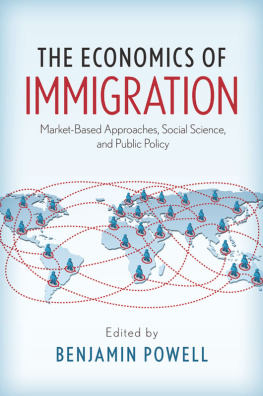The Netherlands Institute for Social Research | scp was established by Royal Decree of March 30, 1973 with the following terms of reference:
a to carry out research designed to produce a coherent picture of the state of social and cultural welfare in the Netherlands and likely developments in this area;
b to contribute to the appropriate selection of policy objectives and to provide an assessment of the advantages and disadvantages of the various means of achieving those ends;
c to seek information on the way in which interdepartmental policy on social and cultural welfare is implemented with a view to assessing its implementation.
The work of the Netherlands Institute for Social Research focuses especially on problems coming under the responsibility of more than one Ministry. As Coordinating Minister for social and cultural welfare, the Minister for Health, Welfare and Sport is responsible for the policies pursued by the Netherlands Institute for Social Research. With regard to the main lines of such policies the Minister consults the Ministers of General Affairs; Security and Justice; the Interior and Kingdom Relations; Education, Culture and Science; Finance; Infrastructure and the Environment; Economic Affairs, Agriculture and Innovation; and Social Affairs and Employment.
First published 2016 by The Netherlands Institute for Social Research
Published 2019 by Routledge
2 Park Square, Milton Park, Abingdon, Oxon 0X14 4RN
52 Vanderbilt Avenue, New York, NY 10017
Routledge is an imprint of the Taylor & Francis Group, an informa business
Copyright 2016 Taylor & Francis.
All rights reserved. No part of this book may be reprinted or reproduced or utilised in any form or by any electronic, mechanical, or other means, now known or hereafter invented, including photocopying and recording, or in any information storage or retrieval system, without permission in writing from the publishers.
Notice:
Product or corporate names may be trademarks or registered trademarks, and are used only for identification and explanation without intent to infringe.
Translation: Julian Ross, Carlisle, uk
dtp: Textcetera, The Hague
Coverillustration: len van Laanen, Geldermalsen
Coverdesign: bureau Stijlzorg, Utrecht
The authors of scp publications can be contacted by e-mail via the scp website.
ISBN 13: 978-90-377-0775-5 (pbk)
2015 was an eventful year in Europe. The budget deficit in Greece and the large number of refugees trying to enter Europe gave rise to much debate. Recent events, such as the terrorist attacks in Paris and the threat of attacks in Brussels, have once again made European citizens aware of the delicate balance between civil liberties, such as privacy and freedom of movement, and national security. These events weighed heavily on cooperation and solidarity in Europe, and sparked off heated discussions among politicians and opinion leaders, as well as on social media.
Research on the preferences, attitudes and opinions of the European citizens is relatively scarce. The focus in this publication is on the opinions of the general public. How do Dutch and other European citizens feel about politics and politicians? Do they trust institutions and one another? Are they satisfied with their lives? And what do they think about immigration and its consequences?
Earlier this year the Netherlands Institute for Social Research|scp published a report entitled Nederland in Europees perspectief (The Netherlands in a European perspective), which was based mainly on data from the first six rounds (20022013) of the biennial European Social Survey (ess). The present publication can be seen as a short update of that earlier report. It now also includes data from the 2014/15 round of the ess. This, the most recent round, included a detailed question module on immigration. That module also was part of the first round of the ess in 2002/03. This means that we can now report on trends in attitudes on immigration over the period from 2002 to 2015, and can look in depth at developments in those attitudes over a longer period. The drawback is that, at present, data is only available for 15 countries.
This publication can be seen as part of the long-standing tradition of scp publications on attitudes and opinions, such as the quarterly Citizens Outlooks Barometer (cob), studies on Quality ofLife, and the more general SocialState of the Netherlands.
I would like to express my gratitude to Professor Gerbert Kraaykamp, Professor Marcel Lubbers, and Dr Roza Meuleman from Radboud University Nijmegen for their dedicated cooperation in this collaborative effort.
Professor Kim Putters
Director, The Netherlands Institute for Social Research|scp
Ineke Stoop, Jeroen Boelhouwer, Gerbert Kraaykamp
The European landscape has been changing rapidly in recent decades. The internal market of the European Union (eu) is now a single market in which the free movement of goods, services, capital and persons is assured, and in which citizens are free to live, work, study and do business. National social policies increasingly operate within the framework of various European policies. Furthermore, the introduction of the euro has had a significant impact on national economies. More recently, Europe has experienced a deep financial and economic crisis, with serious consequences for countries and their inhabitants. Being part of Europe (or the eu) influences our lives in other ways, too. Increasing labour market mobility has changed the social and economic landscape all over Europe. Additionally, a large number of migrants are entering Europe, and this is having a considerable impact on social conditions, and presumably on attitudes, opinions and beliefs. Recent events, such as the terrorist attacks in Paris, the Greek debt crisis and the threat of attacks in Brussels, have once again made European citizens aware of the delicate balance between aspects such as freedom of movement, privacy and national security.
Information on how people live and how they cope, the degree to which they trust institutions and one another, and how they feel about their society, is of key importance in assessing the impact of social, economic and cultural changes.
Civil liberties and basic human values are at the core of Europes major institutions. The Council of Europe advocates freedom of expression and of the media, freedom of assembly, equality, and the protection of minorities. According to Article 2of the eu Lisbon Treaty, The Union is founded on the values of respect for human dignity, freedom, democracy, equality, the rule of law and respect for human rights, including the rights of persons belonging to minorities. Increasingly, politicians and scientists have become aware of the impact of the values, attitudes, norms and beliefs of European citizens on the social fabric of our societies, on the way we live, and on the cooperation of individuals and countries.
Meaningful key questions when analysing values, attitudes and beliefs are: What values do people pursue? Do they trust one another, and their national institutions? Are they satisfied with their lives? And what are their attitudes towards immigrants and refugees?



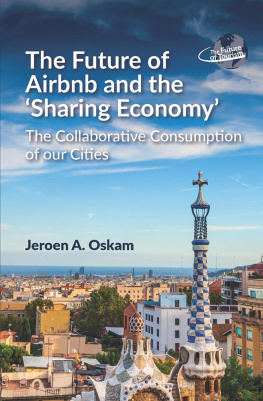
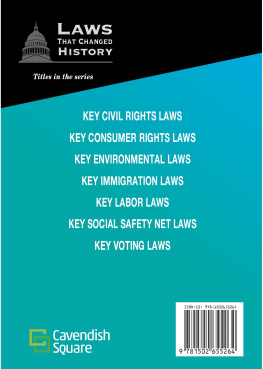
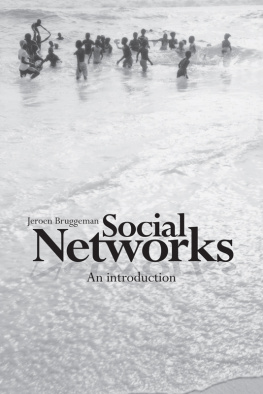
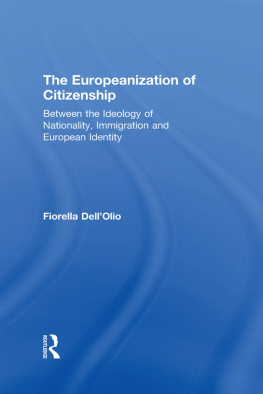
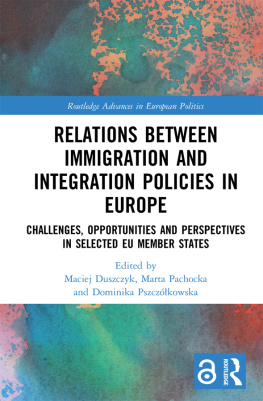



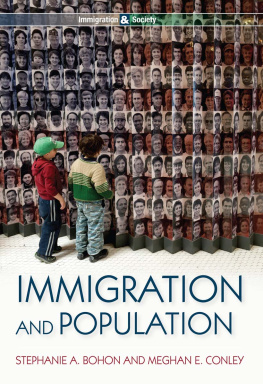
![Jeroen Janssens [Jeroen Janssens] - Data Science at the Command Line](/uploads/posts/book/119617/thumbs/jeroen-janssens-jeroen-janssens-data-science-at.jpg)
